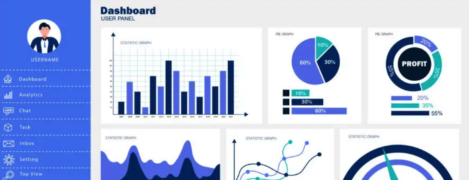The Role of Generative AI in SEO Content Creation

In the evolving landscape of search engine optimization (SEO), generative AI has emerged as a powerful tool to streamline content creation, improve search rankings, and enhance audience engagement. With its ability to analyze data, predict trends, and produce high-quality, keyword-rich content, generative AI is transforming how marketers create and optimize content for search engines.
What Is Generative AI in the Context of SEO?
Generative AI refers to algorithms, such as OpenAI’s GPT models, designed to produce human-like text based on input data. In SEO, these tools assist in creating blog posts, product descriptions, and landing pages that align with search engine algorithms and user intent.
For instance, a generative AI tool can:
- Analyze high-ranking content for specific keywords.
- Suggest related long-tail keywords for deeper coverage.
- Draft meta descriptions, headers, and body content in seconds.
By doing so, generative AI enables marketers to produce content quickly while ensuring it aligns with best SEO practices.
Benefits of Generative AI in SEO Content Creation
1. Keyword Research and Integration
Generative AI tools can analyze search intent and suggest relevant keywords to target. For example:
- If you’re writing about “best electric cars,” AI tools might also suggest phrases like “affordable electric cars 2024” or “top EV brands.”
- AI can recommend optimal keyword density to avoid keyword stuffing, ensuring a natural flow.
2. Efficient Content Ideation
AI helps generate a list of potential topics that resonate with your target audience. For example, an AI tool could analyze trending search queries and suggest blog titles like:
- “10 EV Trends Shaping the Future of Transportation”
- “The Complete Guide to Choosing an Electric Car in 2024.”
3. High-Quality, Optimized Drafts
Generative AI creates content that’s not only well-written but also SEO-optimized. This includes:
- Structuring content with appropriate headers (H1, H2, H3).
- Ensuring readability and adherence to keyword placement guidelines.
- Automating the creation of metadata, improving click-through rates (CTR).
4. Personalized Content at Scale
AI can customize content to different audience segments. For example, an e-commerce site selling workout gear could generate separate blog posts targeting:
- Fitness enthusiasts: “Top 5 Gym Accessories for 2024.”
- Home workout beginners: “How to Build a Home Gym on a Budget.”
5. SEO Audits and Content Updates
Generative AI tools can assist in reviewing outdated content and suggesting updates to maintain relevance. They identify broken links, outdated statistics, and new keyword opportunities, ensuring your content continues to rank well.
Best Practices for Using Generative AI in SEO Content Creation
1. Pair AI with Human Oversight
While AI-generated content is efficient, human oversight is crucial to ensure:
- Content is accurate and aligned with brand voice.
- Factual accuracy, especially in industries like healthcare or finance.
2. Leverage AI for Research, Not Solely for Writing
Generative AI excels at summarizing information, finding trends, and generating ideas. Use it as a research assistant before drafting final content to ensure originality and depth.
3. Optimize for E-A-T (Expertise, Authoritativeness, Trustworthiness)
Google prioritizes content that demonstrates E-A-T. Human contributors should add expertise and authoritative insights to AI-generated drafts.
4. Focus on User Intent
Generative AI can tailor content to meet user intent—whether informational, transactional, or navigational. Tools like ChatGPT can generate content for multiple purposes, including FAQs, product descriptions, and how-to guides.
Practical Examples of Generative AI in Action
Example 1: Blog Post Creation
Scenario: A travel agency wants to rank for “best family vacation spots 2024.”
AI’s Role:
- Generate a keyword-rich outline with headers like “Top 5 Destinations for Families in 2024.”
- Suggest phrases like “family-friendly resorts” and “vacation packages for kids.”
- Draft an engaging intro and listicle format blog post.
Example 2: E-Commerce Product Descriptions
Scenario: An online store sells eco-friendly water bottles.
AI’s Role:
- Produce unique product descriptions optimized for keywords like “reusable water bottles” and “sustainable hydration.”
- Create variations for A/B testing to improve conversion rates.
Example 3: SEO-Friendly Metadata
Scenario: A fitness blog needs optimized meta descriptions.
AI’s Role:
- Suggest meta descriptions like: “Discover the top 10 workout tips for beginners in this comprehensive guide. Get fit and stay healthy!”
The Future of SEO Content with Generative AI
As search algorithms become more sophisticated, generative AI will play an even larger role in content creation. Advanced models will:
- Predict changes in search trends.
- Automate multilingual SEO content.
- Provide deeper insights into audience preferences through analytics.
By integrating AI into your content strategy, you can stay ahead of competitors, produce higher-quality content faster, and continuously adapt to search engine updates.
Conclusion
Generative AI is a game-changer for SEO content creation. From keyword research to drafting and optimization, it offers tools to improve efficiency, scalability, and relevance. However, the human touch remains indispensable for creativity, expertise, and authenticity. By balancing AI capabilities with human insights, marketers can unlock the full potential of generative AI for SEO success.







